Ebulletin #93
20th December 2017
- Introduction
- Season's Greetings from IPRT
- IPRT Annual Review 2016-2017
- New IPRT Report: 'Progress in the Penal System' (PIPS)
- Update: 'Working with Conviction' campaign
- Update: OPCAT Campaign
- New IPRT Discussion Paper: 'Community Service in Ireland'
- Update and Save the Date: ’Abolishing solitary confinement in prisons in Ireland’
- Postdoctoral Research Fellowship Opportunities: PRILA, TCD
- Featured event: Travellers in Prison Initiative (TPI) National Conference
- Become a Member or a Friend of IPRT
See the Mailchimp version here.
Subscribe to IPRT news here.
_________________________________________________
Introduction (IPRT Executive Director)
Season’s Greetings and welcome to the fourth edition of the IPRT E-bulletin in 2017!
I was delighted to return to my role as Executive Director in mid-October after my maternity leave. As most of you may know, in my absence, IPRT was successfully headed by Deputy Executive Director, Fíona Ní Chinnéide. I am grateful for all that she has helped IPRT to achieve in such a short period of time and on behalf of the IPRT staff and Board, I thank her for her dedication. We look forward to welcoming Fíona back from her sabbatical at the end of May 2018.
September, October and November were busy months for IPRT with three events on Spent Convictions, Community Service Orders and of course the launch of our Flagship publication 'Progress in the Penal System'. Details on the events that took place, and on how to find any new materials arising from the events, can be found throughout this E-Bulletin.
Since our last E-Bulletin, there have also been some significant court judgements related to our work. In September, a High Court ruling found that the practice of slopping out was in breach of the plaintiff’s constitutional right to privacy though not a breach of human rights. IPRT has campaigned for the elimination of slopping out in prisons in Ireland since 1994 and we are now eager that progress is maintained to ensure the State meets its commitment to eliminating the practice of slopping out across the prison estate completely by 2020. More recently, in a case taken by four young males against Oberstown, the High Court ruled that the plaintiffs had experienced a “limited” breach of their constitutional rights arising from their treatment. We welcome the attention this case has brought to the issue of single separation/solitary confinement imposed on children in detention. On 2 February 2018 we will launch a major piece of research focussed on abolishing solitary confinement and we are delighted that the former UN Rapporteur on Torture Professor Juan Mendez will be our keynote speaker so please save that date in your diaries.
I may have had the opportunity to meet with some of you during our CSO and ‘PIPS’ events recently. To those of you who I haven’t had the chance to engage with since my return, I look forward to our paths crossing at upcoming IPRT events! I am once again available at director@iprt.ie if I can be of assistance.
I thank you warmly for your ongoing support to IPRT and I wish you and yours a peaceful and happy Christmas.
Deirdre Malone
Executive Director
As always, we welcome your feedback and comments. Contact Lorraine Whitty, Membership and Administration Officer: lwhitty@iprt.ie
_________________________________________________
Season's Greetings from IPRT
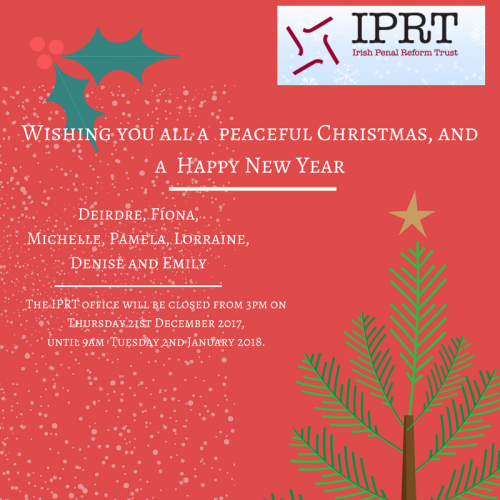
_______________________________________________
Update: IPRT Annual Review 2016-2017 and 2017 AGM
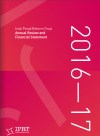 IPRT’s Annual Review 2016-2017 was launched at our AGM on Thursday 21st September in the Ashling Hotel, Dublin. The Review details IPRT’s achievements during the period of July 2016 to July 2017 within our three strategic priority areas: progressive penal policy; a humane penal system; and an organisation that is sustainable, well-resourced and respected.
IPRT’s Annual Review 2016-2017 was launched at our AGM on Thursday 21st September in the Ashling Hotel, Dublin. The Review details IPRT’s achievements during the period of July 2016 to July 2017 within our three strategic priority areas: progressive penal policy; a humane penal system; and an organisation that is sustainable, well-resourced and respected.
The Review also reports on activities during this period in the areas of: communications; research and policy; and alliances and engagement. The commitment of the late Inspector of Prisons, Judge Michael Reilly to ensuring the respect of human rights and dignity in the Irish prison system is marked in the Review, as is the legacy of the late T.K. Whitaker. The Review can be downloaded here, and hard copies are available in request from the IPRT office: info@iprt.ie
Our AGM was an opportunity for the Board and staff of IPRT to update our members on our work and progress made during the year. Christine Littlefield and Brigid Pike retired from the Board of IPRT, and their commitment and contribution to IPRT was commended. Kathleen Leader BL, Joan O’Flynn and Niall Walsh were re-elected to the Board of Directors, and David Perry BL’s co-option to the Board was approved by members. Details about the Board of IPRT are available here.
The Annual Accounts of IPRT for 2016 were approved by the membership, and issues raised by current serving prisoner members were presented.
Following the AGM, Acting Inspector of Prisons, Ms. Helen Casey spoke about the role and work of the Office of the Inspector of Prisons.
_______________________________________________
New IPRT Report: 'Progress in the Penal System: A framework for penal reform (PIPS)'
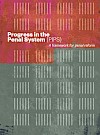 'Progress in the Penal System: A framework for penal reform (2017)' on Tuesday 24th October 2017 at the Irish Human Rights and Equality Commission. This report is the first in the series of three annual reports, which will provide a comprehensive report on human rights standards, and best practice in Ireland’s penal system. IPRT has developed 35 standards against which the situation in Ireland’s penal system will be independently tracked, monitored and assessed on an annual basis. The report covers wide-ranging areas of penal policy including prison conditions, regimes, and access to education and services.
'Progress in the Penal System: A framework for penal reform (2017)' on Tuesday 24th October 2017 at the Irish Human Rights and Equality Commission. This report is the first in the series of three annual reports, which will provide a comprehensive report on human rights standards, and best practice in Ireland’s penal system. IPRT has developed 35 standards against which the situation in Ireland’s penal system will be independently tracked, monitored and assessed on an annual basis. The report covers wide-ranging areas of penal policy including prison conditions, regimes, and access to education and services.
The launch was chaired by Aislinn O’Donnell, Professor of Education, Maynooth (and Chair of the PIPS Advisory Group), who outlined the vision of IPRT. Deirdre Malone, Executive Director, IPRT, outlined the purpose and policy goals of the report; and Michelle Martyn, Senior Research and Policy Projects Manager, IPRT (and author of the report) introduced the report itself.
Alison Hannah, Executive Director, Penal Reform International gave an international perspective, and the panel of respondents to the report were: Ian O’Donnell, Professor of Criminology (and member of the PIPS Advisory Group); Governor Ethel Gavin, Irish Prison Service; and Noel Dowling, Principal Officer - Prisons and Probation Policy, Department of Justice and Equality.
For more on the report, the launch event, and media coverage, see here.
This 3-year flagship project is kindly supported by The Community Foundation for Ireland.
_____________________________________________
Update: OPCAT Campaign
 Senator Ivana Bacik hosted IPRT at an All Party Penal Reform Group Briefing Seminar of the 32nd Dáil and the 25th Seanad on Wednesday 13th December 2017 at 10.30am in the AV Room, Leinster House. Chaired by Senator Bacik, speakers were Deirdre Malone (Irish Penal Reform Trust); Ruth Gallagher (Irish Human Rights and Equality Commission) and Liam Herrick (Irish Council for Civil Liberties).
Senator Ivana Bacik hosted IPRT at an All Party Penal Reform Group Briefing Seminar of the 32nd Dáil and the 25th Seanad on Wednesday 13th December 2017 at 10.30am in the AV Room, Leinster House. Chaired by Senator Bacik, speakers were Deirdre Malone (Irish Penal Reform Trust); Ruth Gallagher (Irish Human Rights and Equality Commission) and Liam Herrick (Irish Council for Civil Liberties).
At the seminar, IPRT introduced Progress in the Penal System: A Framework for Penal Reform (PIPS) to Deputies and Senators. The event had a specific focus of calling on the Government to ratify the Optional Protocol to the Convention against Torture (OPCAT), which is Standard 24 of our PIPS report.
Ireland signed the Protocol in 2007 and has yet to ratify it. Ratification would ensure that comprehensive inspection mechanisms are in place anywhere where people are deprived of their liberty in Ireland. These mechanisms would play a preventative role against torture and other cruel treatment.
IPRT has developed a campaign micro-site (opcat-ireland.com) which holds all of the relevant information about OPCAT and about our campaign. We encourage you to visit the site and sign our petition calling on the Irish Government to ratify OPCAT.
If you have any questions or would like to get involved in the campaign, please contact pdrumgoole@iprt.ie.
________________________________________________
Update: ‘Working with Conviction’ Campaign
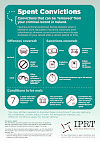 Ireland introduced 'Spent Convictions' legislation in 2016, which means that certain convictions can now become spent, while others can continue to present barriers to work, education, training, insurance, and travel.
Ireland introduced 'Spent Convictions' legislation in 2016, which means that certain convictions can now become spent, while others can continue to present barriers to work, education, training, insurance, and travel.
In light of this, the IPRT held a seminar entitled 'Working with Conviction’, which took place on Tuesday 26th September in Chester Beatty Library, Dublin Castle, Dublin 2.Our keynote speaker for the event was Mr. James Timpson, OBE, Chair of the Prison Reform Trust (UK). James is Chief Executive of Timpson, a family-owned retail business that proactively recruits ex-offenders into the company through working closely with the prison service at over 70 prisons across the UK. The keynote speaker was followed by panel discussion, which tackled different barriers presented by a convictions history, including accessing employment, insurance, and reintegration of people following release from prison.
At the seminar, two information videos produced by SpunOut were launched. The video on spent convictions can be viewed here and the video on expungement of convictions under the Children Act can be viewed here.
In addition to our information videos, a poster and two information sheets entitled 'Information on: Spent Convictions' and 'Information on: Expungement of Convictions' were also launched. These information sheets will be available in Citizens Information Centres nationwide in the New Year.
Photos from the seminar are available on our Flickr. For more info on the event and to view the media coverage related to the event, see here.
The Working with Conviction campaign is kindly supported by The Community Foundation for Ireland.
If you have any questions or would like further information about this campaign, please contact pdrumgoole@iprt.ie.
_____________________________________________
New IPRT Discussion Paper: 'Community Service in Ireland'
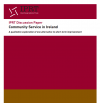 A new IPRT Discussion Paper on Community Service in Ireland, was launched in the Jury Room in the Criminal Courts of Justice on Wednesday 11th October. This paper is based on the doctoral research of Dr Kate O'Hara, ‘Examining the comparative use, experience, and outcomes of community service orders as alternatives to short prison sentences in Ireland’, funded jointly by IPRT and the Irish Research Council in collaboration with DIT.
A new IPRT Discussion Paper on Community Service in Ireland, was launched in the Jury Room in the Criminal Courts of Justice on Wednesday 11th October. This paper is based on the doctoral research of Dr Kate O'Hara, ‘Examining the comparative use, experience, and outcomes of community service orders as alternatives to short prison sentences in Ireland’, funded jointly by IPRT and the Irish Research Council in collaboration with DIT.
IPRT’s core position is that Ireland’s penal policy should be focussed on non-custodial responses to crime, with rehabilitation and social integration at its centre. The paper outlines key points regarding the use of community service, such as:
- Community service is under-utilised in Ireland as an alternative to imprisonment.
- There is a clear variability in the use of community service orders across court jurisdictions in Ireland.
- Community service can provide offenders with an opportunity to improve self-esteem, to gain a strong daily routine, and to maintain links with family.
- There is a strong association between community service and future work or training prospects.
- Short periods of imprisonment can have long-lasting negative effects, including disruption to family relationships, contact with social or community services, and loss of employment.
The paper also outlines 20 key recommendations as to how community service could be better utilised in Ireland. If implemented, IPRT believes that these recommendations would help promote consistency in the use of CSOs as an alternative to imprisonment nationally, enhance public confidence in its effectiveness as a response to offending behaviour, and achieve the full potential of non-custodial alternatives.
More details on the Discussion Paper, the launch event and Dr O'Hara's research can be found here.
_________________________________________________
Project Update and Save the Date: ’Abolishing solitary confinement in prisons in Ireland’
 On any given day in the Irish prison system, prisoners are held on 22- or 23-hour lock up for reasons of protection, or other reasons including discipline. IPRT is particularly concerned about the lengths of time that individual prisoners are held in conditions that amount to solitary confinement.
On any given day in the Irish prison system, prisoners are held on 22- or 23-hour lock up for reasons of protection, or other reasons including discipline. IPRT is particularly concerned about the lengths of time that individual prisoners are held in conditions that amount to solitary confinement.
IPRT recognises the challenge for any prison service in balancing prisoner safety (respecting the right to life) on the one hand, while at the same time providing prisoners with a reasonable and humane regime (respecting rights such as the right to private and family life). However, the harm to prisoners’ mental health that can be caused by extended periods of isolation means that the practice of holding any category of prisoner on 22 or 23-hour lock up must only ever be an exceptional measure; that this cannot be a solution in itself to prisoner safety concerns; and that robust safeguards must be in place in relation to the use of such regimes.
To this end, in 2016 IPRT secured funding from the Irish Human Rights and Equality Commission to pursue an evidence-based research and awareness campaign towards the abolition of the use of solitary confinement in Ireland, and identifying and promoting alternative solutions. Dr Agnieszka Martynowicz, Department of Law and Criminology, Edge Hill University and Dr Linda Moore, School of Applied Social and Policy Studies, University of Ulster, are conducting this research for IPRT. On 2 February 2018 we will launch a major piece of research focussed on abolishing solitary confinement and we are delighted that the former UN Rapporteur on Torture Professor Juan Mendez will be our keynote speaker so please save that date in your diaries.
For more on the issue of solitary confinement, see here.
_____________________________________________
Postdoctoral Research Fellowship Opportunities: Prisons: the Rule of Law, Accountability and Rights (PRILA), Trinity College Dublin
The PRILA project at Trinity College Dublin is recruiting for three postdoctoral research fellowships, each for three years, funded by the European Research Council to research the oversight of prisons. The Project Investigator is Dr. Mary Rogan, Associate Professor in Law.
The positions will be of interest to graduates of the social sciences broadly defined, law and related disciplines. The closing date is 12 Noon on 24th January 2018.
For more, see here.
_______________________________________________
Featured event: Travellers in Prison Initiative National Conference
 The Travellers in Prison Initiative (TPI) National Conference took place in Dublin Castle on Friday 20th October 2017.
The Travellers in Prison Initiative (TPI) National Conference took place in Dublin Castle on Friday 20th October 2017.
There was great interest and large attendance for the conference, which was opened by Minister of State for Equality, Immigration and Integration, David Stanton, T.D. and chaired by Maria Joyce, National Traveller Women’s Forum, and Martin Collins, Pavee Point. The conference showcased the achievements to date of the TPI, and raised awareness of the issues effecting Travellers in prison in Ireland.
Presentations included: background information about Travellers in Ireland and about the TPI; ethnic data collection and monitoring; research on Traveller women in prison; access to services; peer support groups; and peer-mediation in prison. There was also space for participants to work collectively to inform the future development of a sustainable strategy to improve outcomes for Travellers in prison and their families and to reduce rates of imprisonment.
The report, 'Hearing their Voices - Traveller Women in Prison', aimed at reinforcing understanding of issues faced by Traveller women before prison, in prison and after release, was also launched at the conference.
For more information about the Traveller in Prison Initiative, see here.
________________________________________________
Become a Member or a Friend of IPRT
Would you like to become a member of IPRT?
Annual membership is just €10 for students, €40 for individuals, €80 for organisations/firms, and free to prisoners and their families.
By becoming a member of IPRT you will be expressing your support for urgent penal reform in Ireland. Why not consider becoming an IPRT member now?
Friends of IPRT
Become a Friend of IPRT and join a growing network of people who believe in a better, more fair and more humane penal system in Ireland.
By becoming a Friend of IPRT and making an annual contribution of €250 or more over a 3-year period, you are making a real, meaningful investment in the work that we do. Your pledge will help to secure our core work, ensuring that IPRT can and will continue to advocate for positive penal policy reform in Ireland. Become a Friend here in three simple, secure steps.
IPRT relies on donations from charitable trusts, individual donations and membership subscriptions to cover operational costs. Our CHY number is 11091.
We have also received funding from two donor-advised funds managed by the Community Foundation for Ireland, and we were one of the awardees for the inaugural Human Rights and Equality Grants Scheme of the Irish Human Rights and Equality Commission.
IPRT is also grateful for core funding from the following:





